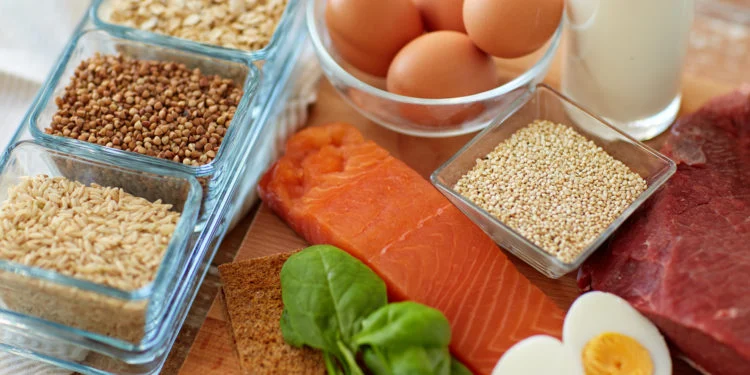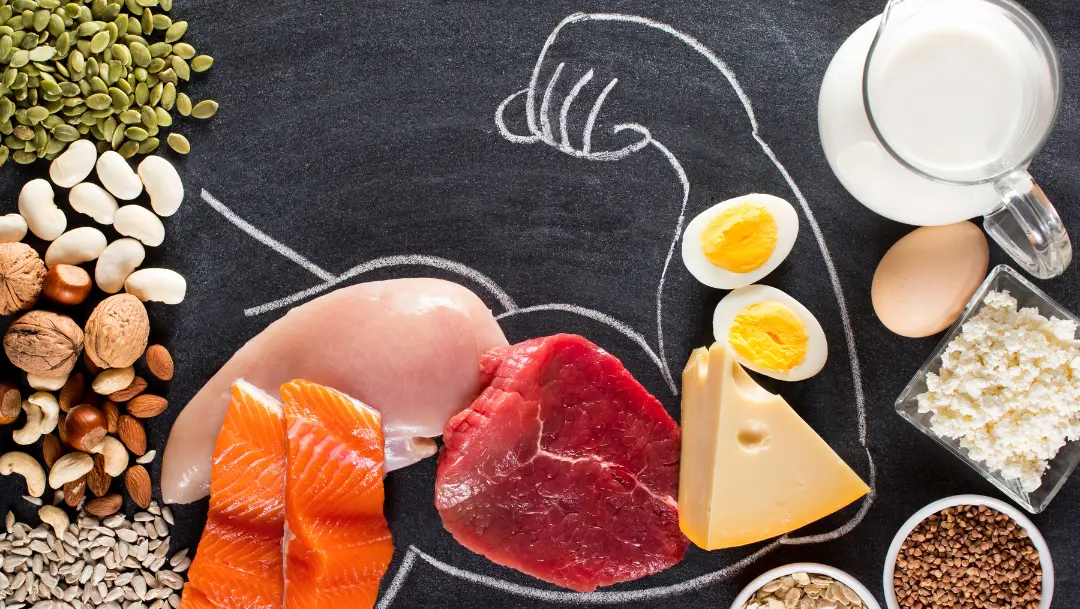Are you looking to shed those extra pounds and achieve your weight loss goals? If so, you’ve probably heard that protein plays a crucial role in the process. But how much protein do you really need for weight loss? Today, we’ll share the impact of protein on weight loss and provide you with the knowledge you need to make informed decisions about your diet and fitness routine.

Contents
How Much Protein For Weight Loss?
When it comes to weight loss, protein plays a crucial role in both shedding those extra pounds and maintaining your progress in the long run. But how much protein do you actually need? Let’s calculate your daily protein requirement and explore how it can be translated into your daily life.
1. Calculating How Much Protein You Need
Determining your protein needs depends on various factors such as your weight, age, goals, and activity level. The general guideline recommended by the National Institutes of Health is 0.36 grams per pound of body weight for a sedentary person. However, if you engage in intense workouts or have a physically demanding job, you may need more protein.
To find your specific protein needs, you can use our calculator which takes into account your body and lifestyle details. By dialing in this nutritional priority, you can take control of your nutrition and achieve your weight loss goals.
2. Example of Estimated Daily Protein Needs
Let’s consider an example of a 150-pound individual. For a sedentary person, the minimum recommended protein intake would be 54 grams per day (0.36 x 150 pounds = 54 grams). However, if you are active or engage in regular exercise, you will require more protein to support muscle repair and growth.

3. Translating Protein Grams into Daily Life
You don’t need to meticulously track every gram of protein you consume each day. Instead, think of your plate as four quadrants. Fill two quadrants with vegetables and fruits, one with grains, and the remaining quadrant with protein-rich foods. This simple approach ensures a balanced and protein-packed meal.
4. Sample Meal Plan for Approximately 1,800 Calories & 100g Protein
To give you an idea of how your daily protein intake can fit into your meals, here’s a sample meal plan based on a calorie intake of approximately 1,800 calories with a target of 100 grams of protein:
- Breakfast: 1/2 cup of oatmeal made with 1/2 cup of milk, 1/2 cup of blueberries, 2 tablespoons of chia seeds, and 2 tablespoons of walnuts. (481 calories, 20g protein)
- Snack: 1 banana with 1 tablespoon of peanut butter. (200 calories, 5g protein)
- Lunch: Grilled chicken breast salad with mixed greens, cherry tomatoes, cucumber, and a light vinaigrette. (400 calories, 35g protein)
- Snack: Greek yogurt with a handful of almonds. (250 calories, 15g protein)
- Dinner: Grilled salmon with roasted vegetables and quinoa. (550 calories, 30g protein)
Benefits of Protein for Weight Loss
Here are the key benefits of protein for weight loss:

1. Increased Metabolic Rate
Protein has a higher thermic effect compared to fats and carbohydrates, meaning it requires more energy to digest and process. This increased metabolic rate can help you burn more calories throughout the day and contribute to weight loss.
2. Appetite Regulation
Protein is more satiating compared to fats and carbohydrates. Including protein-rich foods in your meals can help you feel fuller for longer periods and reduce your overall calorie intake. By curbing your appetite, protein can assist in reducing cravings and preventing overeating.
3. Muscle Retention
During weight loss, it’s crucial to preserve muscle mass. Higher protein intake can help in preserving lean muscle tissue while reducing body fat. This is important because muscle is metabolically active and contributes to a higher resting metabolic rate.
4. Thermogenesis
Protein has a thermogenic effect, meaning it increases heat production in the body during digestion. This increased energy expenditure can further enhance weight loss efforts.
5. Nutrient Partitioning
Protein-rich diets are known to improve nutrient partitioning. This means that the macronutrients you consume, such as carbohydrates and fats, are more likely to be utilized for energy rather than stored as fat.
Frequently Asked Questions
Does protein burn fat without exercise?
Protein alone cannot burn fat without exercise. However, it can help preserve muscle mass during physical activity and reduce hunger and calorie intake, aiding weight loss.
How can I increase my protein intake for weight loss?
To increase protein intake, include lean meats, seafood, beans, soy, low-fat dairy, eggs, nuts, and seeds in your diet.
What are the symptoms of consuming excessive protein?
Symptoms can include weight gain, bad breath, constipation, diarrhea, dehydration, kidney damage, increased cancer risk, and heart disease.

Hello, I’m Ravindra. Over the years, I’ve immersed myself deeply into the world of fitness and health, transforming both my body and mind. Writing has allowed me to share my journey, insights, and expertise with those just starting out and seasoned fitness enthusiasts alike. Beyond just routines and diets, I believe in inspiring others to adopt a holistic approach to well-being.
